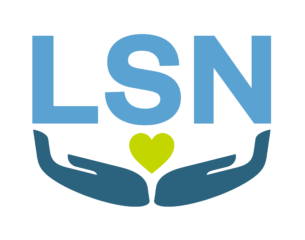The training program recognizes that fellows may occasionally have concerns about training-related decisions and actions of the Assistant Director for Social Work Training (“DSWT”) and Training Committee or specific aspects of the training program. In addition, fellows will occasionally have other work-related concerns about a supervisor or other member of CAPS staff or another CAPS trainee. The procedures described below establish a framework for resolution of these concerns in a fair and unbiased manner. This framework consists of a process for informal resolution, followed by a process for formal resolution when informal resolution is not successful.A fellow who wishes to formally challenge a written warning, schedule modification, probation, notice of insufficient improvement or dismissal from the program for inadequate performance or problematic behavior.
A. Informal Problem-Resolution Process
- Direct Communication. A fellow who has concerns about a training-related decision or action of the DWST and Training Committee or specific aspects of the CAPS training program should first attempt to address and resolve the concerns through direct communication with the DSWT. If this does not resolve the concerns to the fellow’s satisfaction, the fellow should ask the DSWT for additional assistance in resolving the matter informally, as provided in step 2 below. A fellow who has other work-related concerns about a supervisor or other member of CAPS staff or another CAPS trainee should first attempt to address and resolve the concerns through direct communication with that individual. If the fellow is uncomfortable communicating directly with that individual, the fellow should ask the DSWT for assistance, as provided in step 2 below. If the fellow’s other work-related concerns are with the DSWT and the fellow is uncomfortable communicating directly with the DSWT, the fellow should consult the Associate Director, who will stand in for the DSWT in the grievance process.
- DSWT Assistance. If the fellow attempts to address the concern through direct communication as above but is not satisfied with the result, the fellow should ask the DSWT for additional assistance in resolving the matter informally. The assistance the DSWT may provide includes, but is not limited to, the following:
- Helping the fellow brainstorm about how best to communicate with the individual
- Facilitating a mediation session between the fellow and the individual
- Taking the issue to the Training Committee, the Assistant Director for Psychology Training (“DPT”) and/or the Associate Director for informal consultation and problem-solving
- Taking the issue to the CAPS Operations Team and/or the CAPS Director for informal consultation and problem-solving
- With the fellow’s consent, asking the University Ombuds Office to assist in facilitating communication, mediation or other informal means of conflict resolution
- Changing supervision assignments or adding additional supervision
The training program expects that the informal resolution process described above will resolve most training- and work-related concerns of fellows to the satisfaction of the fellow. In the unusual case in which it does not, the fellow may invoke the Formal Grievance (Review Committee) process described below.
B. Formal Grievance (Review Committee) Process
- The fellow initiates this process by giving the DWST a letter that describes the fellow’s concerns and the efforts that have been made to resolve them and asks the DSWT to convene a Review Committee. If the fellow is formally challenging a written warning, schedule modification, probation, notice of insufficient improvement or dismissal based on inadequate performance or problematic behavior, the fellow must give the DSWT this letter within 5 working days of the fellow’s receipt of written notice of the decision being challenged.
- Within 3 working days of receipt of the fellow’s letter, the DSWT must take the following actions:
- Write a letter to the fellow that confirms receipt of the fellow’s grievance letter, states that a Review Committee is being convened and outlines the Review Committee procedures, including the fellow’s right to select one of the CAPS senior staff members on the Committee and to present information and explain their position to the Committee, either orally or in writing
- Write a letter to the target of the fellow’s concern that states that the fellow has filed a formal grievance, briefly summarizes the nature of that grievance, states that a Review Committee is being convened, and outlines the Review Committee procedures, including the target’s right to choose one of the CAPS senior staff members on the Committee and to present information and explain their position to the Committee, either orally or in writing.
- Convene a Review Committee consisting of the Associate Director, one member of the CAPS senior staff selected by the DSWT and one member of the CAPS senior staff selected by the fellow. Neither the DSWT nor the CAPS Director can serve on the Review Committee.
- Within 10 working days of the DSWT’s receipt of the fellow’s grievance, the Review Committee will hold a hearing in which the fellow’s grievance is heard and relevant information is presented.
- The fellow and other CAPS staff or CAPS trainee involved must be notified of the date and time of the hearing at least 3 working days before it occurs.
- Prior to the hearing, the Committee may request written statements from and conduct personal interviews with the individuals involved or other individuals with relevant information.
- Prior to the hearing, the fellow may submit to the Committee any written statements deemed appropriate, request a personal interview with the Committee, and/or request that the Committee interview other individuals with relevant information. The other CAPS staff or CAPS trainee involved has these same privileges.
- Within 3 working days of the completion of the hearing, the Committee will, by majority vote, decide upon a recommended response to the fellow’s grievance and submit this recommendation in writing to the CAPS Director.
- The CAPS Director will make the final decision on the appropriate response to the fellow’s grievance.
- Within 5 working days of receipt of the Review Committee’s recommendation, the CAPS Director will accept the recommendation, reject the recommendation and provide an alternative, or send the matter back to the Committee for further deliberation and revised recommendations, or may make a final decision without .
- If the CAPS Director sends the matter back to the Review Committee for further deliberation, the Review Committee must submit a revised recommendation to the CAPS Director within 3 working days and the CAPS Director must make a final decision within 3 working days of receipt of that revised recommendation
- When the CAPS Director has made a final decision, the fellow and other appropriate individuals will be informed in writing of that decision.
- If there are extenuating circumstances that make these timelines unattainable, the involved parties will be notified in writing.
C. Special Options for Concerns about Discrimination, Harassment and Related Misconduct Based on Protected Status
- The University’s Policy on Prohibited Discrimination, Harassment and Related Misconduct prohibits all forms of discrimination and harassment based on an individual’s age, color, creed, disability, gender, gender expression, gender identity, genetic information, national origin, race, religion, sex, sexual orientation, or veteran status (“protected status”), as well as related misconduct, including interpersonal violence, stalking, complicity, and retaliation. See https://eoc.unc.edu/our-policies/ppdhrm/.
- A fellow who believes that CAPS, the training program, a supervisor or other member of CAPS staff or another CAPS trainee may have discriminated against or harassed them based on their protected status, or subjected them to other related misconduct prohibited by the University’s Policy on Prohibited Discrimination, Harassment and Related Misconduct (“PPDHRM”), may elect to bypass these internal grievance procedures and take the concern directly to the University’s Equal Opportunity and Compliance Office (https://eoc.unc.edu/ ) or the University’s Title IX Compliance Coordinator (https://eoc.unc.edu/whoweare/our-team/). In addition, a fellow who attempts to address such a concern through these internal grievance procedures may, at any point in the process, terminate the internal process and take the concern directly to the University’s EOC Office or Title IX Compliance Coordinator
- If a fellow raises a concern about possible discrimination, harassment or other related misconduct prohibited by the University’s PPDHRM, and the DSWT determines that the interests of the fellow, other members of CAPS staff, the training program and/or CAPS as a whole would be better served by outside resolution of the concern, the DSWT may refer the concern to the University’s Equal Opportunity and Compliance Office for resolution. The DSWT shall consult with the CAPS Director and/or Associate Director and notify the fellow before making such a referral. For more information on what happens after the referral, see https://eoc.unc.edu/what-we-do/address-misconduct/reports/ .
D. Other University Resources for Addressing Fellow Concerns
- Another resource a fellow can use to address work or training-related concerns is the University Ombuds Office. The Ombuds Office listens to complaints from employees, provides information, facilitates communication, and helps arrange mediation or conflict resolution between or among members of the University’s faculty, staff and Postdocs. For more information on the Ombuds Office, see https://ombuds.unc.edu/about-us/
- Fellows may also use the University’s Facilitated Conversations program to discuss and resolve any workplace issues. See https://hr.unc.edu/managers/consultations/facilitated-conversations/
Move on to FAQs

